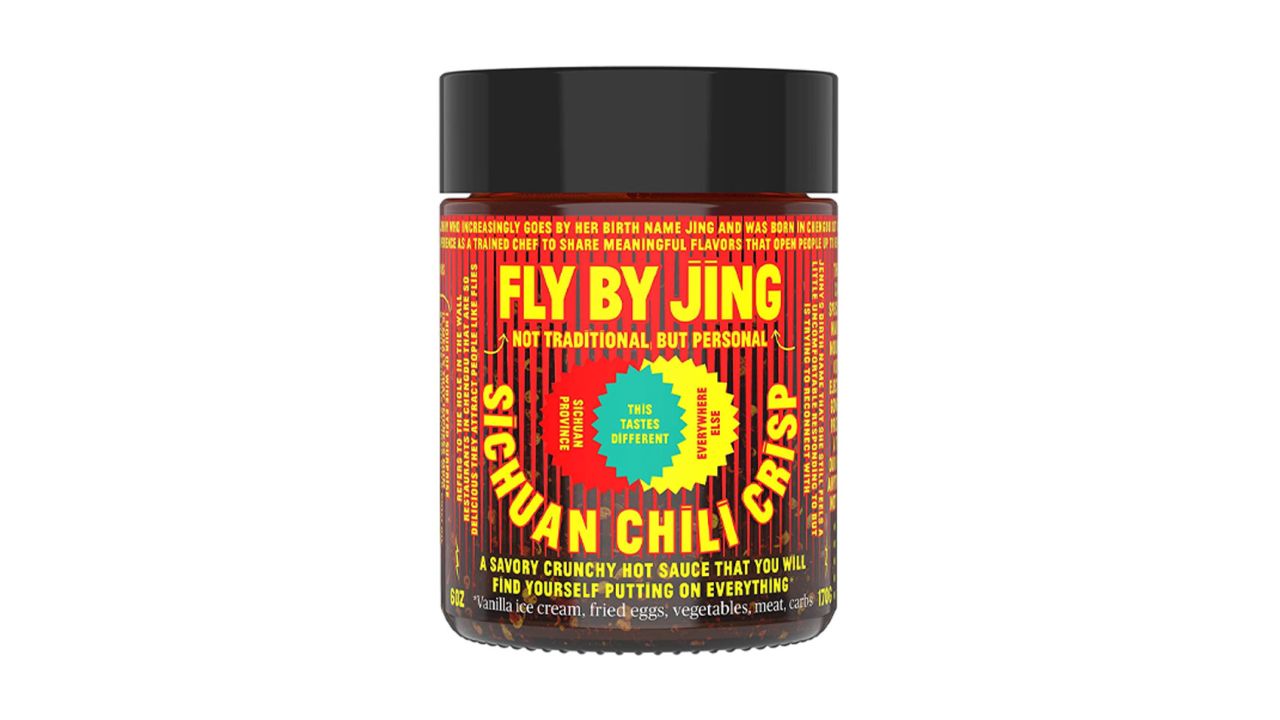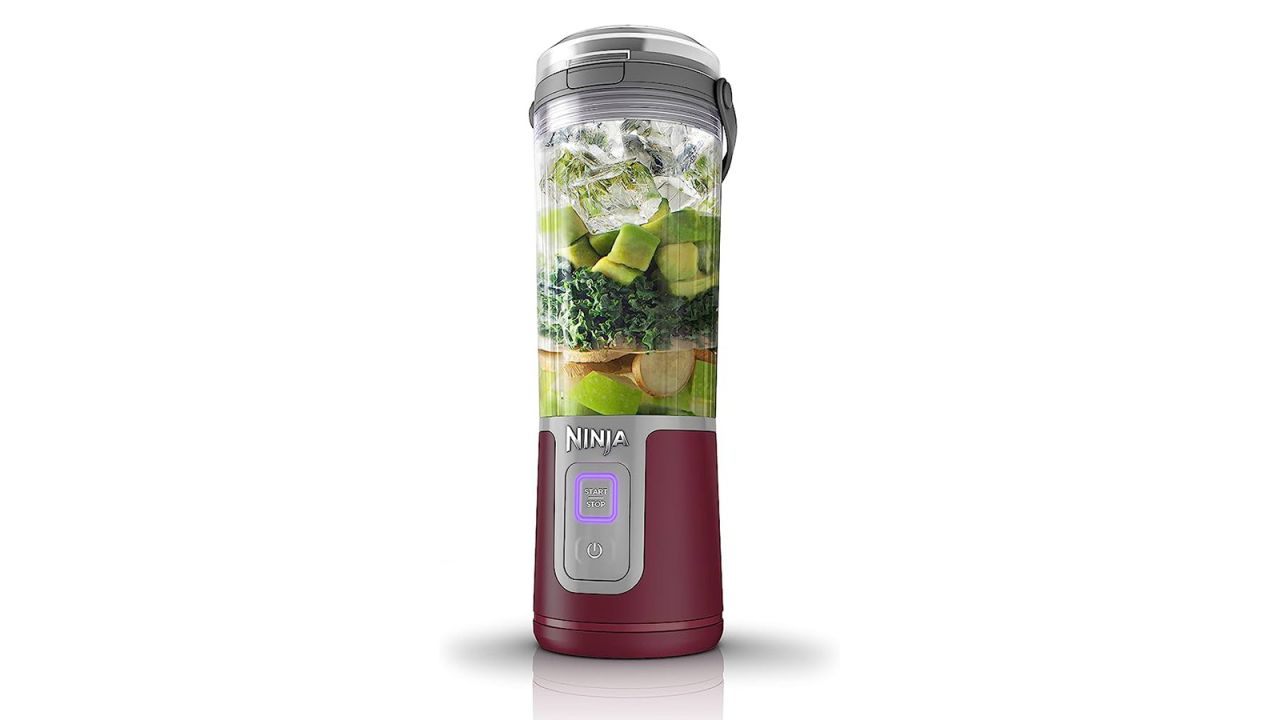It’s AAPI Heritage month, which means there’s no better time to recognize how Asian, American and Pacific Islanders have contributed to our world. One of the best ways to experience and support their culture? Through AAPI-owned food and beverage brands. It’s easy to explore these fabulous cultures with your sense of taste, because, thankfully, there’s no shortage of delicious options just a few clicks away from arriving at your doorstep, no international flight needed.
From cult-favorite DTC brands like Fly By Jing (which has made chili crisp a pantry staple) to coffee brands galore, there are tons of mouthwatering brands that pay tribute to a variety of AAPI heritages. Below, check out some of our favorite AAPI-owned food and beverage brands that will make serving up restaurant-quality meals and beverages at home a breeze (your stomach will thank us later!).
AAPI-owned food brands
Omsom
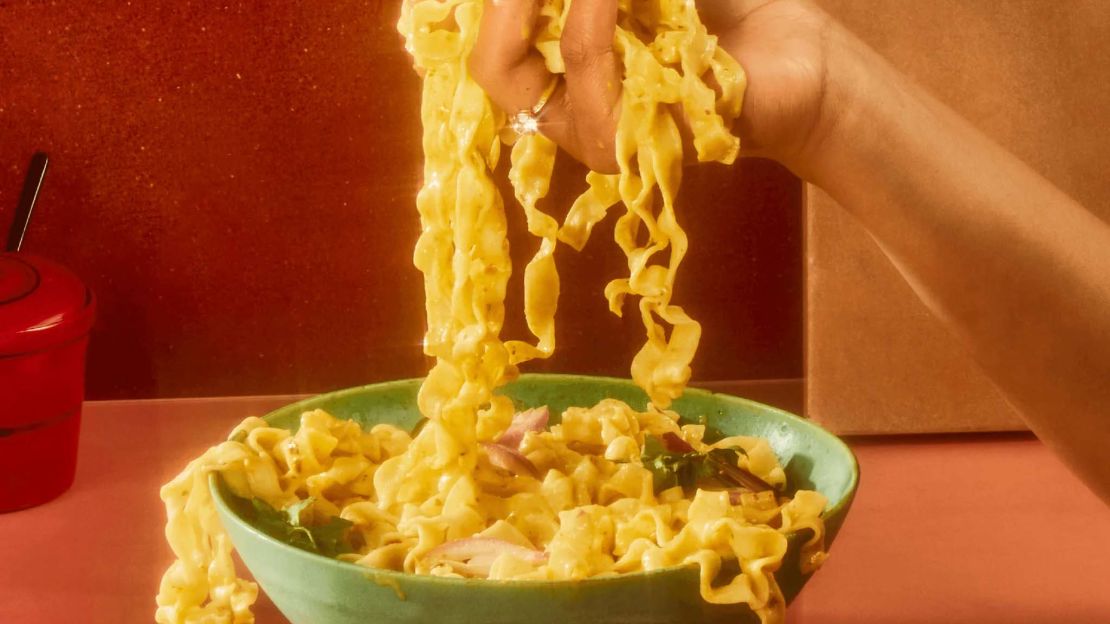
If you’ve ever wondered how to replicate your favorite Asian dishes from home — whether it’s Filipino sisig or Korean spicy bulgogi — Omsom makes it (almost) as easy as ripping open a pouch. No need to go searching for hard-to-find ingredients or placing an online order for spices you’re not quite sure are right for the recipe. Omsom prepares all the sauces, aromatics and seasonings you need for signature Asian dishes and packages them in pouches so you can simply mix them in with your favorite protein and veggies. “Growing up, we never felt seen by the ‘ethnic’ aisle in mainstream grocery stores,” says Omsom co-founder?Kim Pham. “We wanted to build a company that reclaims and celebrates the multitudes within Asian flavors and stories.”
Kim and Vanessa Pham, sisters and Omsom co-founders, are first-generation Vietnamese Americans and the daughters of refugees. Food, as they describe it, is a way of reengaging with their identities as women of culture and as “third culture” folks — those raised in a culture other than that of their parents. “Our mission is to give Asian Americans a modern way to access a real-deal taste of home and to show non-Asian Americans what it means for this category to be done right,” Kim Pham says. All the starters we tested were incredibly delicious and simple to use; our only suggestion is to order more than one type. We’d recommend either the?Southeast Asian Omsom Sauce Sampler?or the?East Asian Omsom Sauce Sampler, each of which is enough for upward of 16 meals. Can’t decide between the two? Get both with?the Omsom Sauce Bundle.
Try out the brand’s hero product with this 10-box bundle that includes the Coconut Lemongrass Curry Saucy Noodles, Soy Garlic Saucy Noodles, Chili Sesame Saucy Noodles and Garlic Black Pepper Saucy Noodles. These air-dried noodles are ready in just four minutes and can even be cooked in the microwave.
Noodles wouldn’t be complete without an equally mouthwatering sauce to match. This set includes 12 sauces, including Krapow, Lemongrass BBQ, Larb, Yuzu Miso Glaze, Spicy Bulgogi and Spicy Mala, which will help you serve up restaurant-quality meals in about 20 minutes.
Fly By Jing
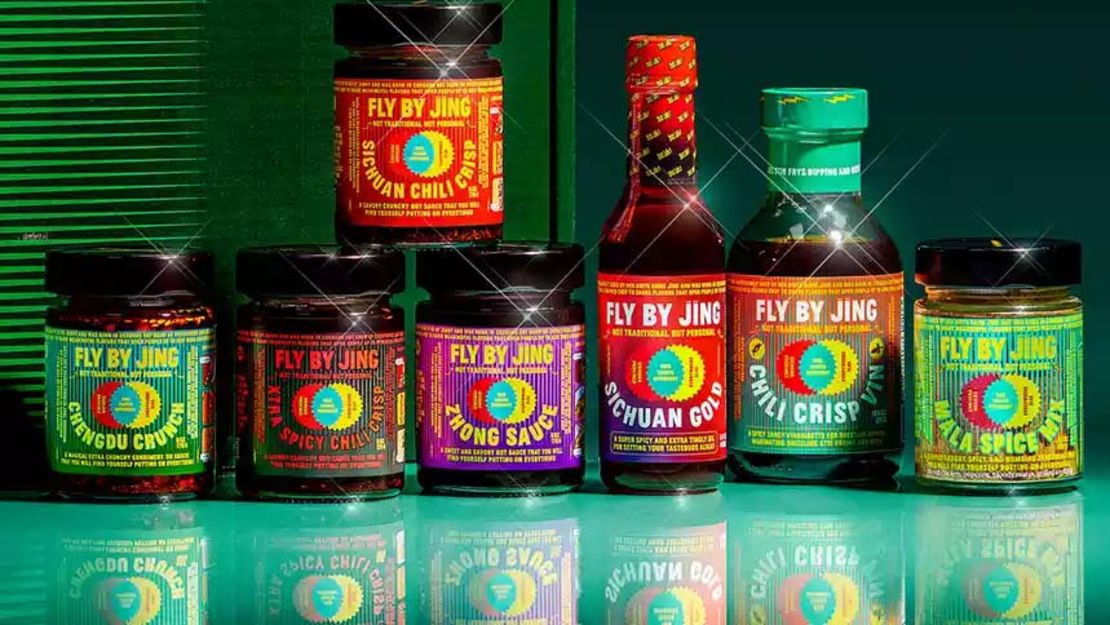
Fly By Jing offers a range of mouth-watering sauces and spices, the most popular of which is the brand’s?Sichuan Chili Crisp. While reminiscent of other hot chili oils, this one is way more complex, savory and deliciously crispy — truly, we’ve been putting it on everything. It’s also the first and only 100% all-natural Sichuan chili sauce, crafted in founder?Jing Gao’s hometown of Chengdu. “My Chinese identity is totally inextricable from Fly By Jing, in terms of the brand’s origin, where it is today and where it’s going,” Gao says. Her goal with the brand is to create a destination for the best Chinese food products on the planet and reshape how people in the West think of Chinese food. “It’s an ambitious mission,” Gao says, “and one that has everything to do with me, my hometown and its flavors.”
If you’ve never had the pleasure of tasting Fly By Jing’s iconic chili crisp sauce that started the chili crisp trend, you’ll want to add this goes-with-anything sauce to your cart first. Top it on ice cream (hear us out!), drizzle on eggs, toss it with pasta — the options are endless.
Get the best of both worlds with this trio of the brand’s bestselling sauces. In addition to the coveted Sichuan Chili Crisp, you’ll also get to try out the Zhong Sauce (a little sweeter) and the Chengdu Crunch.
Brightland
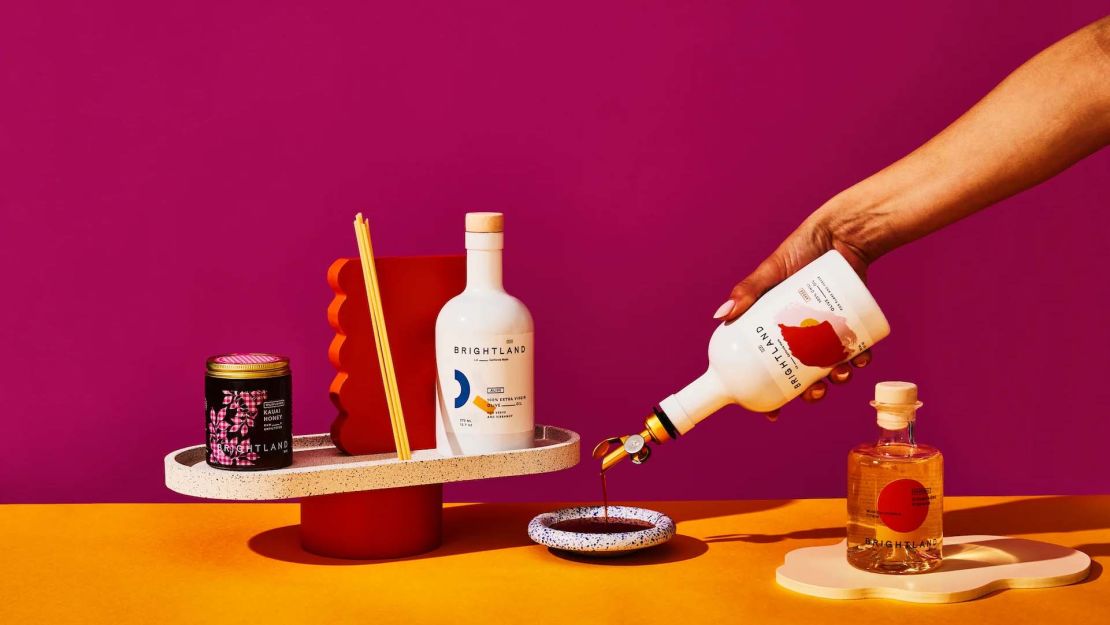
“After embarking on a personal journey with food-related issues back in 2018, I noticed just how often I was reaching for a bottle of olive oil without having any understanding of where it came from,” says Brightland founder Aishwarya Iyer. “This realization sent me on a deep dive into the world of olive oil, which sparked my passion for quality and traceability. It was from those early moments that the idea of Brightland was born — a brand committed to crafting artfully designed, delicious and high-quality pantry essentials that bring joy and happiness to people’s lives.”
Iyer’s ancestors were salt farmers in Tamil Nadu, South India, and she says she is inspired by their connection to the land. “This further drives my dedication to the industry, ensuring that every bottle of Brightland is infused with intentionality and purpose,” she says. The brand’s products — which range from artisan olive oils to honey and vinegar — are all consciously made by family farmers and local makers with the highest-quality ingredients. From heirloom olives to fresh farm fruit, Brightland never skimps on the little things that make a huge difference in the quality of their products.
Brightland’s bestselling duo is a personal pantry staple of Tamara Kraus, Underscored’s senior lifestyle editor. It includes two flavors: Awake, which boasts a bold flavor profile that’s perfect for roasting, soups, bread and more; and Alive, which is a grassy cold-pressed extra-virgin olive oil that you’ll want on hand for salads, hummus and baked goods.
Just like Brightland’s olive oils, the brand’s honey supports family-run farms in the United States. This molasses-like honey is made from flowers and plants native to Hawaii, such as hibiscus, eucalyptus, coffee trees, papaya trees, passionflower and guava flowers.
Immi
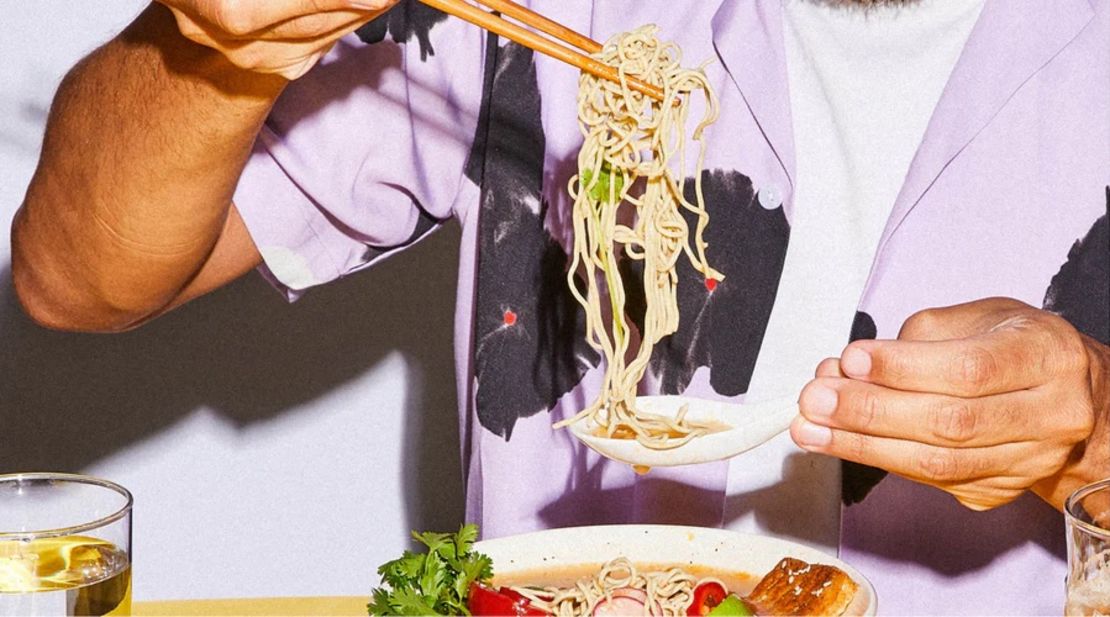
Finally, instant ramen gets a modern makeover, thanks to Immi. Founded by Kevin Lee and Kevin Chanthasiriphan, they started Immi because of their love for ramen and to help their families eat healthier. They also both worked in food markets in Taiwan and Thailand, where noodles were part of their daily routines.
You can shop the noodles in either cup or packet form, and they come in a variety of tasty flavors from Spicy Red Miso to Spicy “Beef.” The noodles feature 21 grams of protein and are plant based, but they still boast that traditional ramen flavor you love. And with celeb fans including Naomi Osaka, Usher and and Kygo, you know this stuff must be legit.
Can’t decide what flavor to get? Immi offers two variety packs with different flavors so you can mix things up.
This microwavable cup makes it a breeze to take your favorite ramen on the go — or if you simply don’t want to dirty a dish at home.
Paro
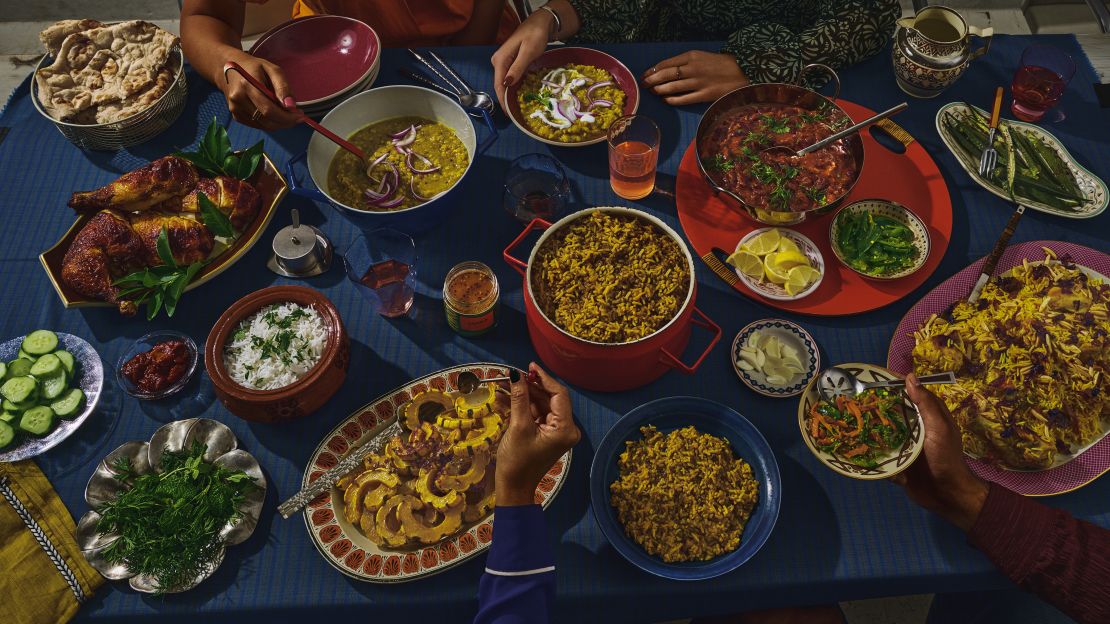
Paro helps you serve up delicious, home-cooked South Asian food in about 20 minutes with a variety of plant-based pantry staples. All you have to do is add water and you’ve got a gourmet meal in no time. “I founded Paro with a deep-rooted passion for bringing the rich and diverse flavors of South Asian cuisine to a broader audience,” says Umaimah Sharwani, founder of Paro. “Inspired by my love for my ami’s (mom’s) cooking and the comforting taste of Pakistani food, I’m on a mission to make South Asian food more approachable and accessible for all.”
From condiments like the Tarka Oil to Kitchari (a cozy, soupy mix of mung bean, basmati rice and a blend of seven spices), these staples are the definition of comfort. Plus, you can find a bunch of easy-to-make recipes on the brand’s website for some inspo.
Dairy-free, gluten-free and vegan, Kitchari is a comfort food made with split mung beans and long-grain white rice. Eat it as a side or on its own.
If you’re a fan of the chili crisp trend, you’ll love this South Asian version made with ghee and grapeseed oil. Use it as a topping on pizza, pasta,?whatever your heart (and stomach) desires.
Momofuku
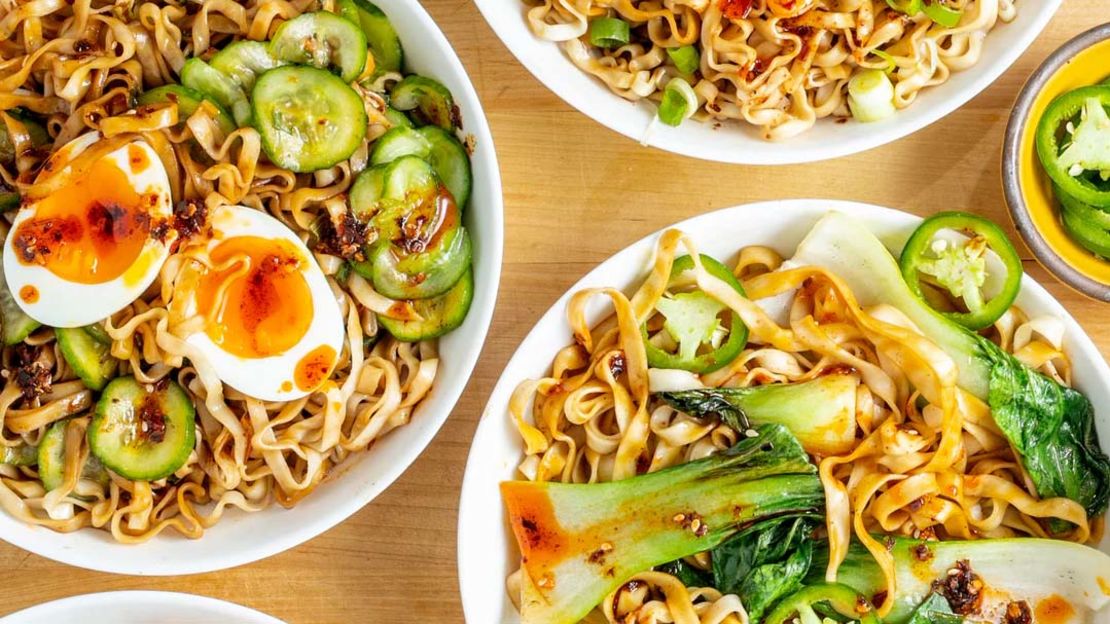
If there’s one brand you’ve probably heard of on this list, it’s Momofuku. Whether you’re familiar with the namesake restaurants by iconic chef David Chang or you’ve come across the brand from its claim to fame, the Momofuku Chili Crunch, it’s nearly a household name. Now the brand has expanded its online grocery offerings beyond the iconic mouth-tingling sauce. From air-fried ramen noodles available in three delicious flavors (and yes, they give Top Ramen a run for its money) to the hot honey version of the chili crunch, you’ll definitely want to have some of Momofuku’s essentials in your pantry at all times to take boring dinners to the next level.
Long gone are the days where you really only had one brand of ramen to buy at the store. Momofuku’s noodles are packed with flavor, air-dried and vegan for a healthier take on the easy-to-prepare meal.
It’s no secret that hot honey is taking over our pantries, so it’s no surprise Momofuku’s beloved Chili Crunch now comes in a spicy-sweet version.
Spicewalla
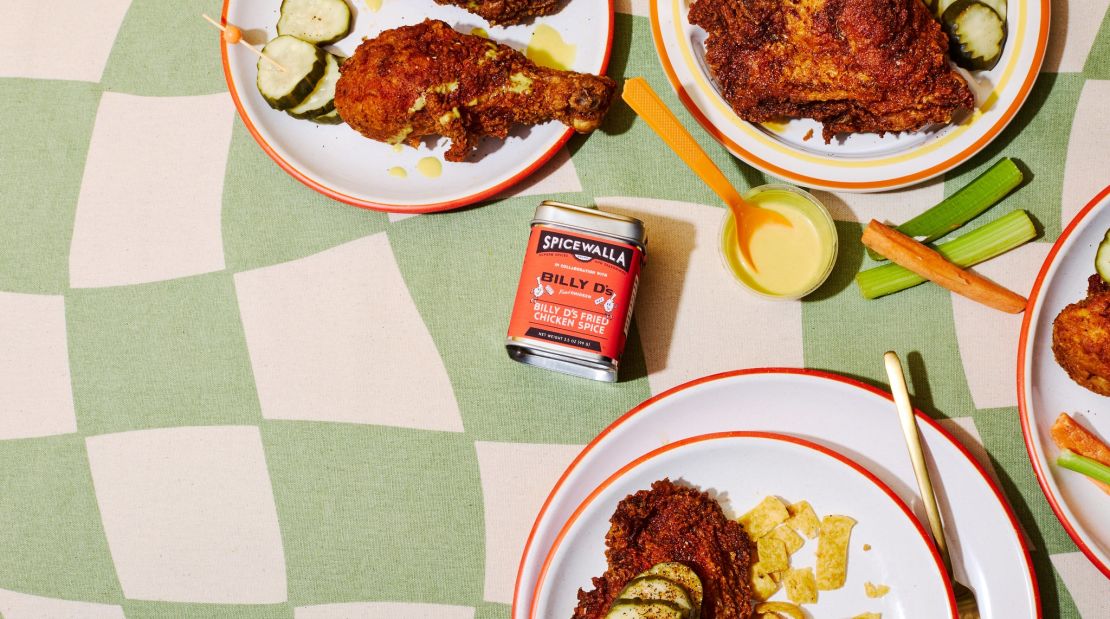
Founded by James Beard Award-winning chef Meherwan Irani, Spicewalla is a foolproof way to add an elevated touch to your meals without the hassle (or skill set of a pro chef). Irani was inspired to start the company because of his Indian heritage. “Meherwan noticed that spices, like produce, are part of the natural rhythm of the seasons,” according to the brand’s website. “Seeds are planted, and grow until procured at different times of the year. Then they’re used in making blends and masalas. The entire family is involved in this process. Each family’s blend is distinctive and a source of pride. Every fall, a whole week was dedicated to making their own dhansak masala in Meherwan’s grandmother’s home.”
Just in time for summer, this BBQ rub is the perfect thing to have on hand for all those cookouts ahead. Made with a spicy-sweet blend of brown sugar, honey, salt and vibrant chilis, this is the ultimate way to bring the hot honey trend home.
Sharing the same name as one of Irani’s coveted restaurants, Chai Pani, this set is a no-brainer if you want to bring that chef flavor to your kitchen — sans reservation. Fun fact: Irani’s mom actually trained the staff of his Chai Pani restaurant for two months on how to use spices and create her blends.
Bokksu
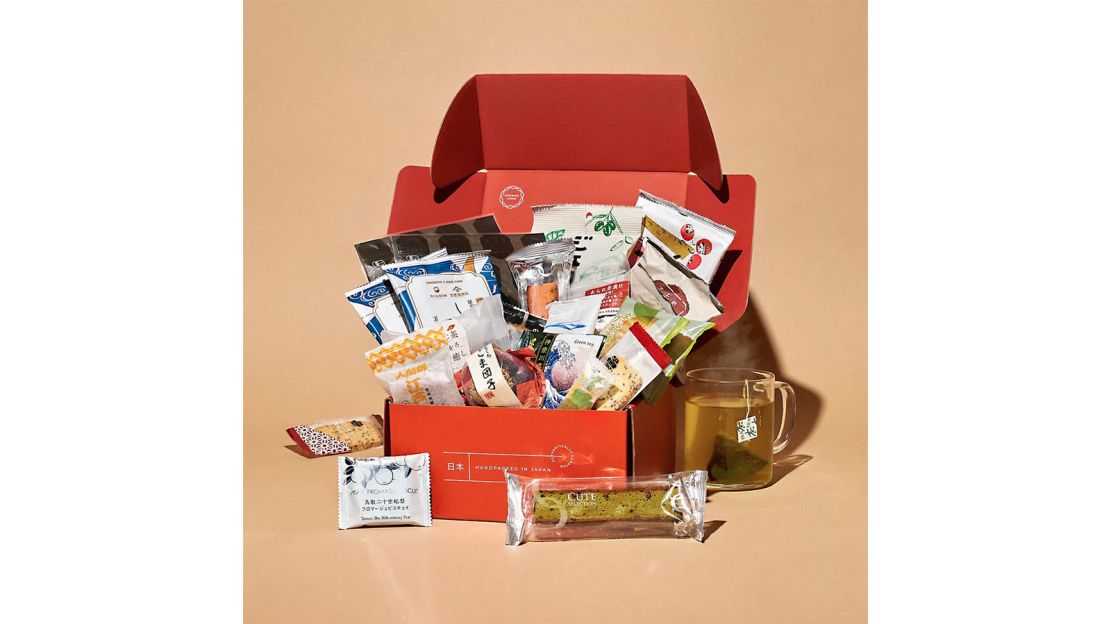
Bokksu is one of the most?delightful subscription services we’ve ever tested. For just?$50 per month?(or less, depending on your plan), you’re sent a massive assortment of some of the most delicious and interesting snacks from around Japan. And this isn’t the Japanese candy you can find in a local grocery store — most of it comes from small businesses and artisanal creators — so you’re trying stuff that, without sounding clichéd, is really special.
“As an Asian American born in the US to immigrant refugee parents, I always had to act as a bridge between my family and the rest of society,” says Bokksu founder?Danny Taing. “This experience with navigating linguistic and cultural barriers was key to my success of integrating into Japanese society during the years I lived in Tokyo.”
Taing credits this eventual fluency in Japanese culture as what enabled him to successfully launch Bokksu, which he hopes can expose people across the world to authentic Japanese culture and food. And our absolute favorite part about Bokksu achieves just that.
With every box of snacks, you receive a booklet full of information all about each of the goodies — no Japanese required. You can read up on fun facts about what you’re munching on (a wonderful window into learning more about Japan and Japanese culture), who they’re made by and with what, along with any dietary restrictions or common allergens.
Bachan’s
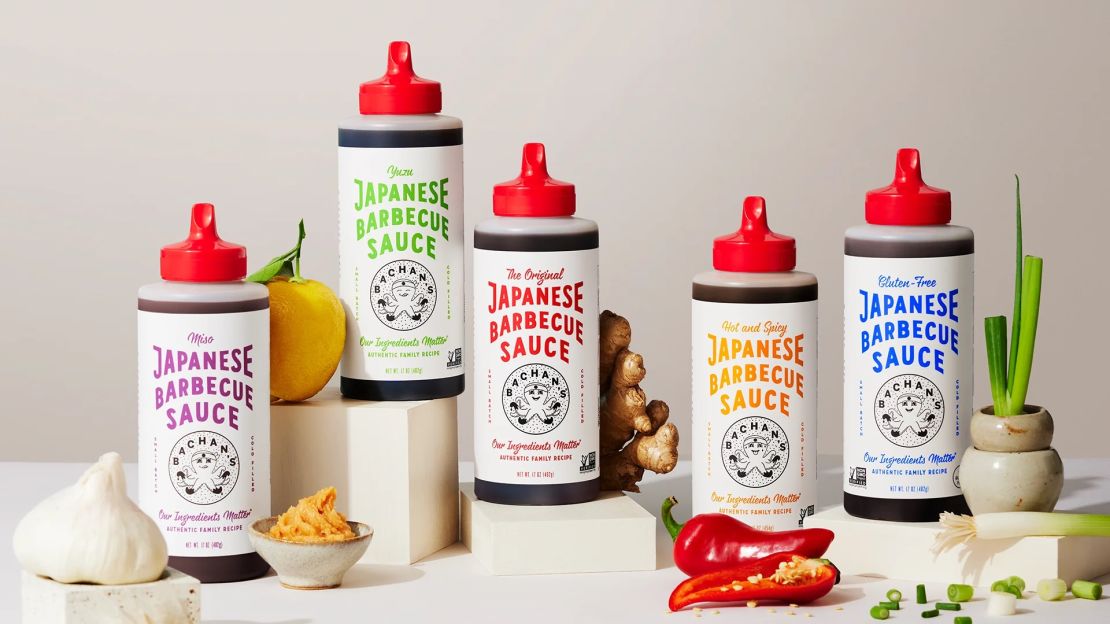
Sometimes you stumble across something that you just can’t get enough of. Bachan’s is one of those treasures — in sauce form. To put it simply,?Bachan’s Japanese Barbecue Sauce?is sort of like an upgraded teriyaki sauce: It’s sweet, salty and super umami. But its superpower is in transforming a bland dish of protein and veggies over rice into something much greater than the sum of its parts. “Bachan” is Japanese for “grandmother,” someone to whom Justin Gill, owner and founder of Bachan’s, owes a lot of thanks for the brand’s success.
Gill credits the beginning of?Bachan’s history?to his great-grandmother, Shigeno Yokoyama, who immigrated to the United States from Hiroshima, Japan, in 1923. “Her culinary talents, family focus and [entrepreneurialism] have inspired generations, including our brand,” Gill says. “Named for my bachan Judy Yokoyama — Shigeno’s daughter-in-law — this sauce is a family heirloom that has been present at family meals for decades.” And it’s one that we’re thrilled to be able to enjoy as well. “Bringing the sauce to the public has been a way for our family to honor our heritage and rich history,” Gill says, “while also hoping to bring other families together over delicious food and good times.”
Think outside the box with this four-pack of the brand’s preservative-free, vegan sauces. It includes one of each: Hot and Spicy, Citrus Yuzu, Miso and the Original.
Once you taste this OG flavor, it’s guaranteed to be a staple in your fridge. It has a much thinner consistency than regular American BBQ sauces, so it’s the perfect way to jazz up chicken, beef or salads without being too overpowering.
MìLà

MìLà’s tasty soup dumplings even have “Shang-Chi” star Simu Liu’s stamp of approval, who became the brand’s chief content officer last year. Founded by husband and wife Caleb Wang and Jennifer Liao, the company makes it easy to whip up juicy xiao long bao, spicy and tender noodles, and more Chinese dishes at home. The recipes are influenced by the food the founders grew up eating and are an expression of their love language through food. Keeping a bag or two of the dumplings in the freezer makes for the easiest weekday meal.
Currently available in three flavors, with a new Pho Beef option coming in June, these xiao long bao pack in plenty of umami flavor, combining yummy broth with pork, chicken or a shrimp-and-pork combo.
These are a more grown-up version of instant noodles, based on classic Chinese dishes. It’s hard to pick a favorite from the Spicy Dan Dan, Caramelized Scallion Oil and Sweet and Savory noodle flavors.
Issei Mochi Gummies
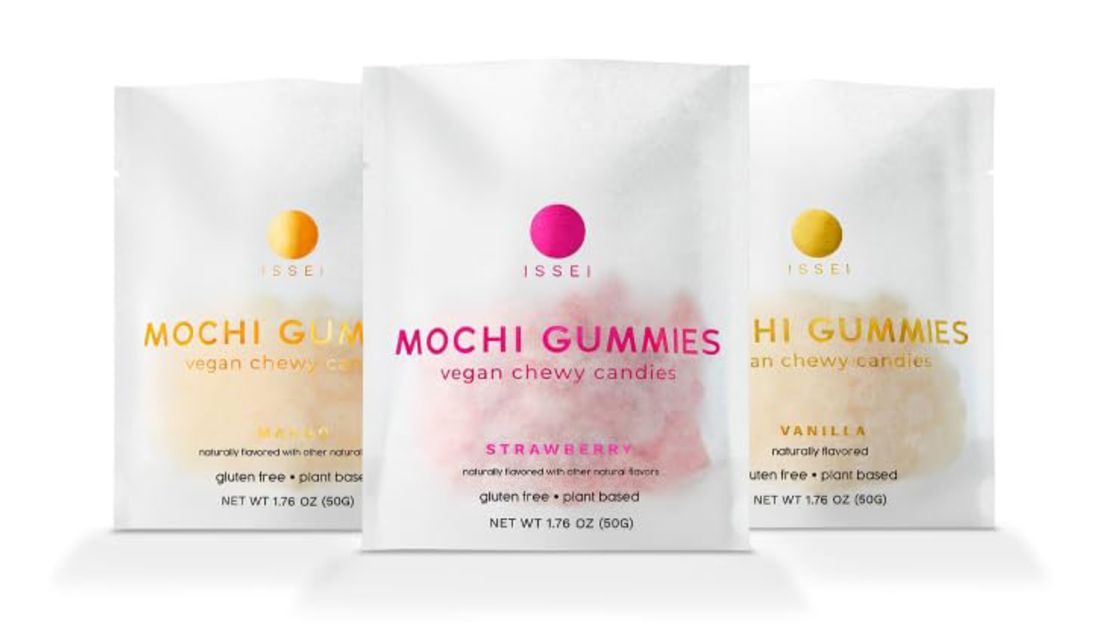
“‘Issei’ means first-generation Japanese immigrants in the US,” says founder and CEO of Issei Mochi Gummies, Mika Shino. “I named my company Issei as an ode [to] and a celebration of all immigrant cultures and what immigrants bring to this country with hopes and dreams of a better future. There is so much to admire in the heritage of all cultures, with food often being the vehicle for shared cultural memories and dialogue.”
Shino was inspired to start Issei Mochi Gummies because she wanted to share her heritage by offering a candy showcasing Asian ingredients like rice and tapioca, which aren’t typically seen in candies. “I wanted to expand the definition of certain foods, starting with … gummy candy, which have been dominated by European-inspired ingredients, and push for inclusion of Asian heritage and global flavors,” she says. The candies are also vegan and gluten-free and come in flavors like Mango, Yuzu and Sour Watermelon.
If you’re looking for a more subtle sour candy, these watermelon versions are a great alternative.
Prefer things a little more tart? Yuzu, which is a mix of mandarin, lemon and grapefruit, should make your taste buds dance.
Laoban
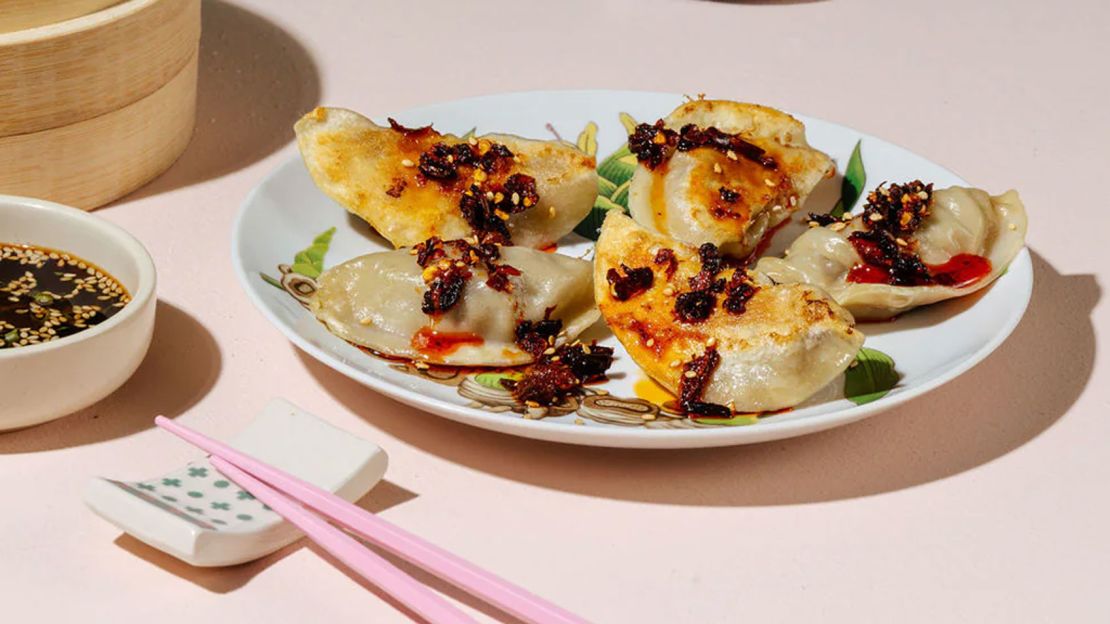
At Laoban, five-time Michelin-awarded chef Tim Ma is cooking up delectable dumplings that live in your freezer, ready for you to enjoy whenever the craving strikes. As the culinary director of the brand, Ma creates recipes that celebrate traditional Chinese flavors, including Mala Beef, Ginger Chicken, Pork and Chive, and Pork Soup dumplings. Laoban will also be expanding to other dim sum favorites and introducing a new launch soon.
Ma is also the founder of Chefs Stopping AAPI Hate, which spreads awareness about racism against the Asian community and supports other AAPI organizations and allyship.
Sichuan pepper and chili give these grass-fed beef dumplings a satisfying kick. Don’t forget to douse them in vinegar and chili crisp.
To really prove you love dumplings, rep your favorite food with this adorable baseball cap embroidered with a plump little guy.
AAPI-owned beverage brands
Copper Cow Coffee
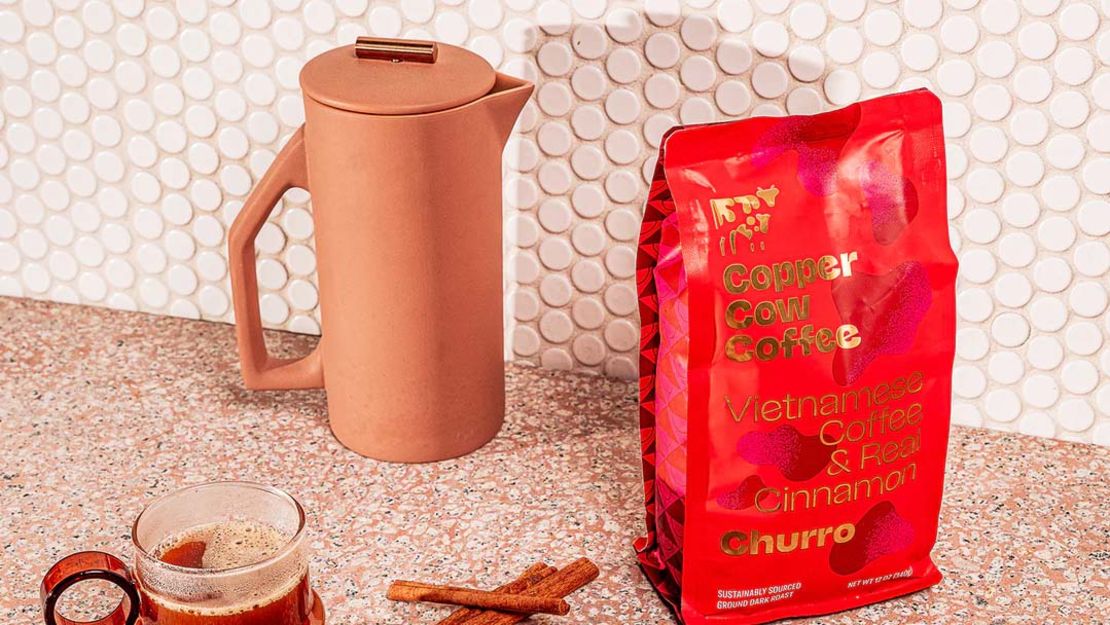
Founder and CEO of Copper Cow Coffee Debbie Wei Mullin started the brand to bring Vietnamese coffee to the US in an approachable way, with fun flavors and transparent sourcing practices. “Vietnam is?the second-largest coffee producer in the world,?but American consumers are unaware of just how?profound?Vietnamese coffee’s?environmental and socioeconomic implications?are,?not to mention how distinctive and rich its flavor profiles can be,” Mullin says. “It’s been an incredible journey proving that Vietnamese robusta beans can compete head-to-head with arabica coffees on the shelves of Whole Foods, Costco, Target and more.” The brand has spent the last eight years working with farmers in Vietnam, and they have certified the first premium organic farms in Vietnam, which proves that robusta can thrive in organic environments.
While you can shop a classic ground coffee, standout varieties include the brand’s signature single-serve, pour-over kits (they’re a personal favorite of our senior lifestyle editor Tamara Kraus).
If you prefer to stick to the basics, this classic black ground coffee is sure to become a staple in your morning routine. It’s sustainably sourced and works with all coffee makers.
Bring the art of Vietnamese pour-over coffee straight to your kitchen with these easy-to-use, single-serve sets, which come in a variety of flavors from Lavender to Churro.
Sanzo
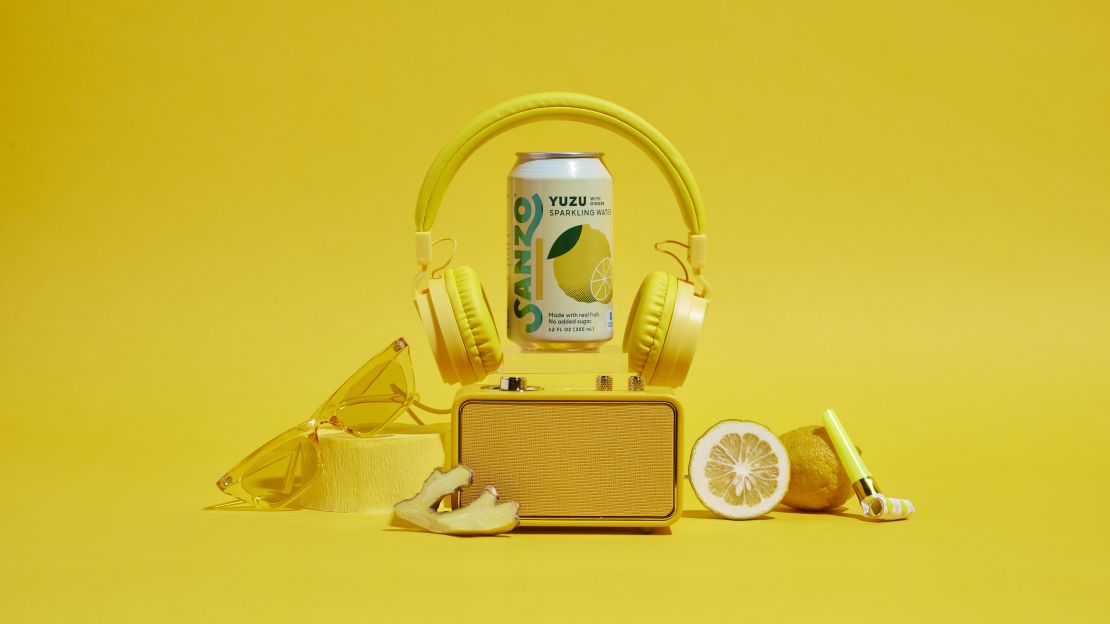
“Back in 2018, the world witnessed an influx in interest in Asian and Asian American culture,” says Sanzo founder Sandro Roco. “It was the summer of ‘Crazy Rich Asians,’ BTS’ first nationwide tour where they were selling out football stadiums, and for the first time, I felt like AAPI culture was really taking center stage in America … but I quickly noticed that the celebration of Asian American culture wasn’t as prominent in the grocery store, particularly in the beverage category.”
Roco founded the company with a goal to bridge Eastern and Western cultures, largely through Sanzo’s fun, unexpected flavors. Instead of the same flavors you see on most grocery store aisles (like lemon, lime and grapefruit), he went bold with more exciting options including Lychee, Calamansi, Yuzu with Ginger, Mango, and Pomelo, which are all made with real fruit juice and no artificial flavors or added sugars. Now Sanzo is in more than 4,000 retailers and boasts celeb fans including Asian American icons Simu Liu, Steve Aoki, Jeremy Lin and Chrissy Teigen.
The best way to get a real taste of the first Asian-inspired sparkling water brand is to try them all with this variety pack of 12 cans.
Once you’ve tasted Sanzo, show off your obsession with this cool sweatshirt.
Nguyen Coffee Supply
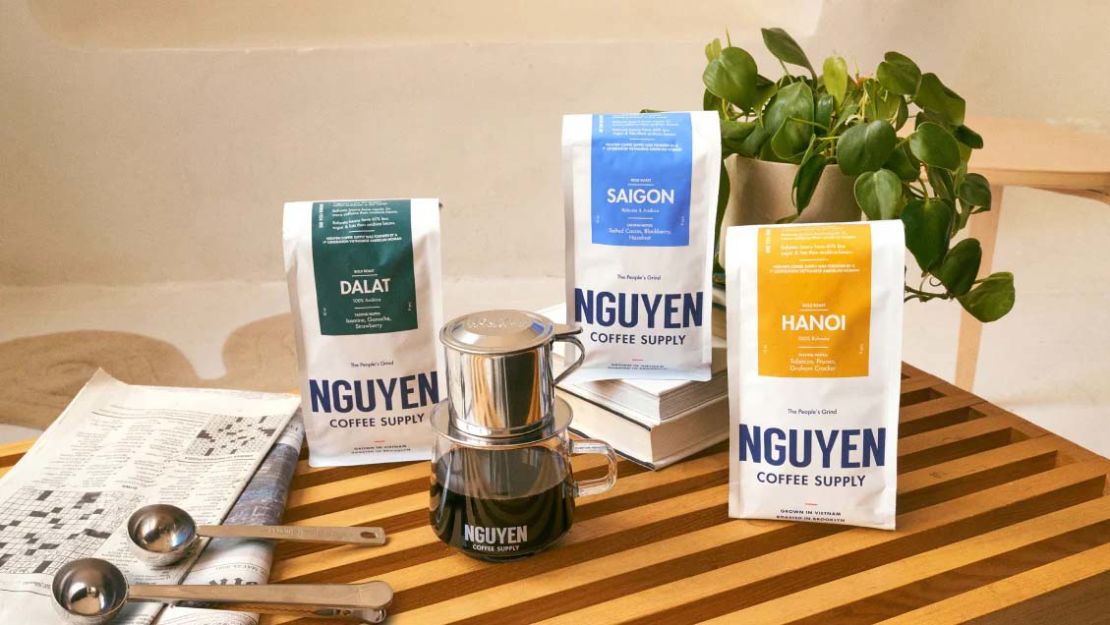
All the beans used by Nguyen Coffee Supply are handpicked at peak ripeness in Vietnam, which produces a sweet and flavorful taste. Freshly roasted in Brooklyn, the brand’s coffee is free from all the bad stuff: additives, flavorings and oils. “Growing up Vietnamese American, I wanted to share the rich and diverse coffee culture of Vietnam with others,” says the CEO and founder Sahra Nguyen. “Vietnamese coffee is distinctly different because of its focus on robusta coffee,?which is more bold in flavor and higher in caffeine. Even though Vietnam is the world’s second-largest coffee producer, Vietnamese coffee has been excluded from the specialty coffee?conversation, so in 2018, I set out to change?that by establishing a direct trade relationship, importing green beans and roasting Vietnamese coffee fresh in Brooklyn.”
This sweet and fruity medium roast can be brewed however you like: drip, cold brew, French press — the options are endless.
With temperatures rising, it’s the perfect time to equip yourself with an at-home cold brew kit so you can save serious money on trips to the coffee shop on those hot summer mornings. It comes with everything from the coffee (choose between ground and whole beans) to the Phin filter, coffee scoop set and mug.
Wildwonder

Rosa Li, founder and CEO of Wildwonder, was inspired to start the brand by her grandmother, who exposed her to Eastern herbal methods at an early age. Li says that she had a tonic for every need — from a stomachache to boosting your mood. “I created Wildwonder as a celebration of my heritage by combining herbs and botanicals with unique and fun flavors that American palettes would enjoy, making the benefits of herbs accessible for the masses,” she says. “My vision is that this East-meets-West approach honors AAPI traditions and encourages their mainstream acceptance.”
Recently, Wildwonder’s prebiotic and probiotic sparkling drinks were even on “Shark Tank” and Li landed a deal.
Sip on these flavors that the Sharks loved on “Shark Tank” (and resulted in a deal!). The pack includes four cans of each flavor: Raspberry Lychee, Pineapple Paradise, Strawberry Passion, Mango Gold, Guava Rose and Peach Ginger.
Mix up your nonalcoholic drink routine with this all-in-one kit that includes four cans of Wildwonder (Pineapple Paradise, Guava Rose, Peach Ginger and Strawberry Passion), a three-piece bar set (shaker, jigger and muddler) and 10 mocktail recipes.
Driftaway Coffee
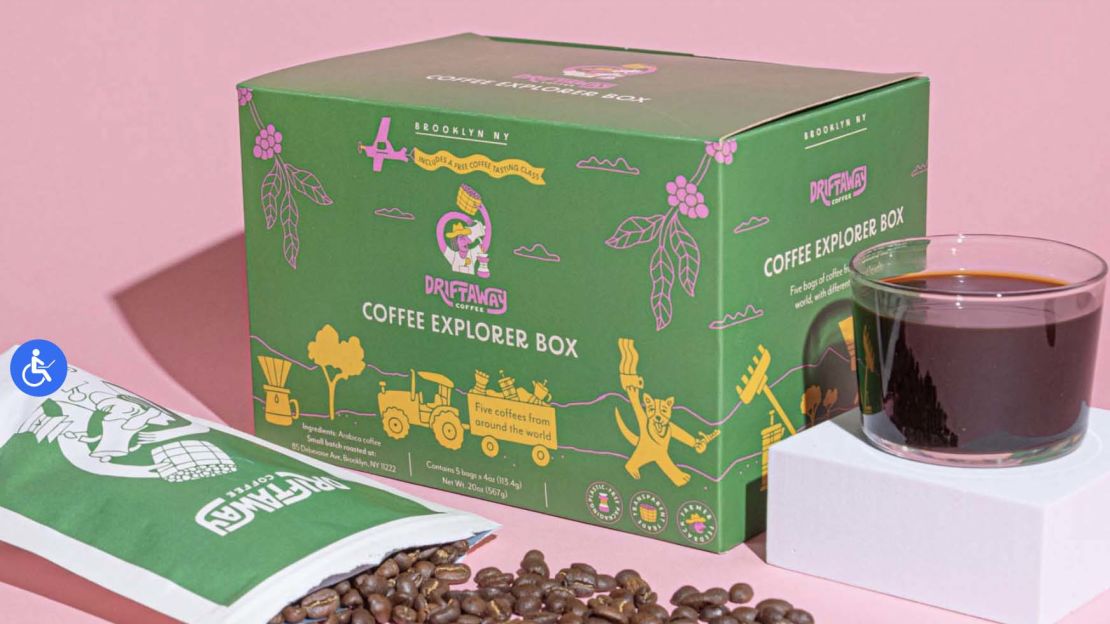
Driftaway Coffee started as a passion project by husband-and-wife duo Anu Menon and Suyog Mody and has since become a mission-driven business that aims to spotlight and reward those who deserve more recognition in the specialty coffee market. “As one of the few AAPI coffee founders in the US, sourcing coffee inclusively is a critical part of our mission,” says Menon. “We want to build an equitable value chain in coffee by sourcing inclusively from underrepresented communities. We pay three times to five times the Fair Trade price for the coffees we source and have a one-of-a kind two-way price transparency report with Farmer Feedback reports.”
She adds that “being Indian immigrants, we are passionate about bringing specialty Indian coffee to the spotlight with our Rooted in India collection, and advocating to bridge the gender inequity in coffee growing with the She Roars collection.”
Experience a trio of coffees and chocolates from Raaka Chocolate, along with a testing and pairing guide.
It’s officially cold brew season (though some say it’s year-round), so it’s the perfect time to stock up on the refreshing bevvie. This kit comes with three types of blends designed for cold brew: Bright, Balanced and Bold.
SummerFall Sake
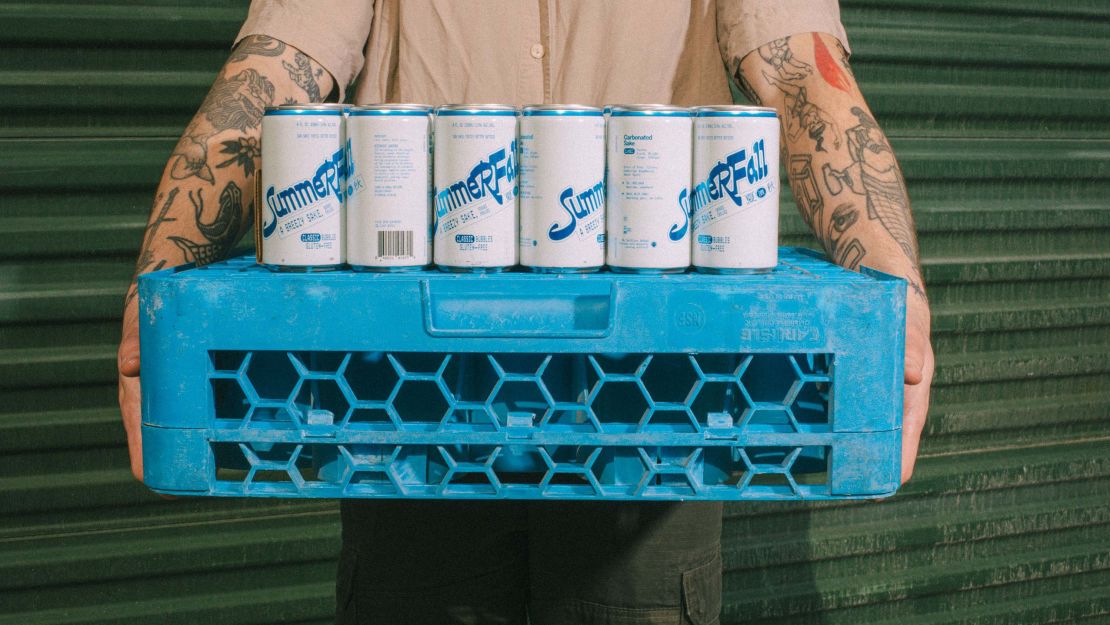
“Sake is a beverage that’s important to both my family and my heritage, but it’s long been trapped by the constraints of time and place (particularly the Japanese restaurant),” says Takuma Inagawa, founder and CEO of SummerFall Sake. “My goal is to modernize sake by showing people that it can be enjoyed anywhere, any time.?After?creating?the bestselling sake brand in France (Wakaze), I?recently?launched SummerFall, which?uses local California?rice, water and wine cultures?to create?a uniquely?Asian American product that combines?traditional Japanese brewing methods with West Coast ingredients,” he says.?These canned bevvies are portable, so they’re great for everything from picnics to the beach. And yes, you can eat anything — even a cheeseburger —?with them!
SummerFall’s hero — and only product — is a bubbly sake served in a can that’s perfect for any occasion.
Bean & Bean Coffee
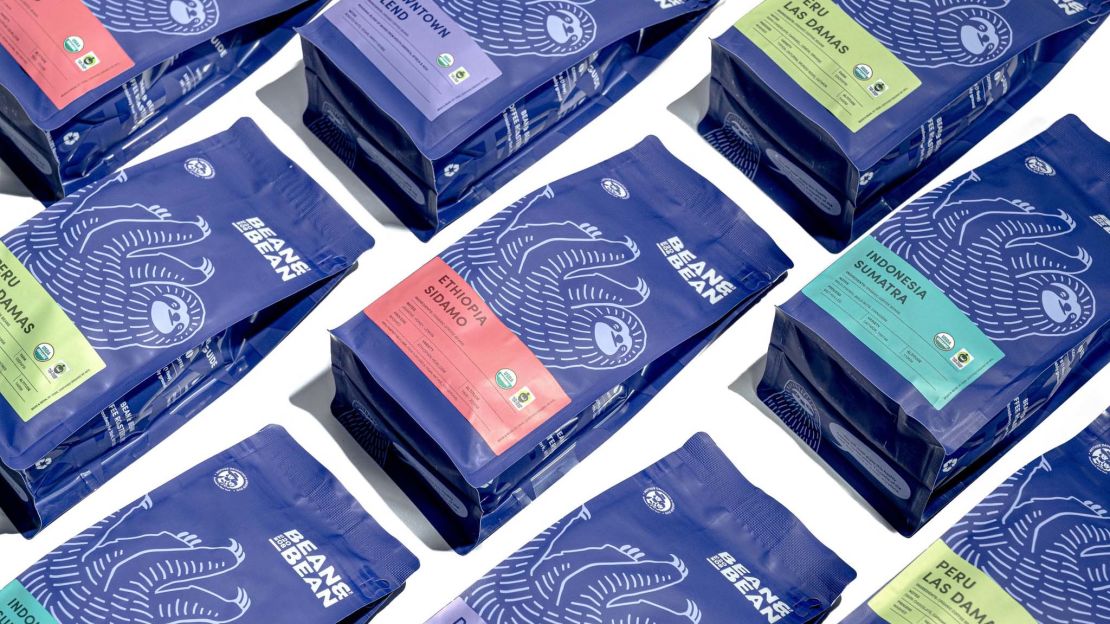
“Korea has the largest per capita Q Arabica Graders (also known as certified coffee sommeliers) but no global brands at the forefront of specialty coffee,” says the founder of Bean & Bean Coffee, Jiyoon Han, who is also a Q Grader and Cup of Excellence Judge. She says she built the coffee company to bring the best coffee, made with Korean expertise, from family farms and women-led farms to New York and people around the world. Bean & Bean even partners with Ivy League universities and Fortune 100 companies.
“My AAPI identity is deeply woven into the fabric of?Bean?&?Bean,” Han says. “We draw inspiration from Korean café culture for our drinks and menu, like our Einspanner Cold Brew — freshly brewed coffee with decadent house-made cream on top, inspired by the Einspanner craze in Korea.”
There’s no better way to sample the best from Bean & Bean than with this quartet of the NYC bestsellers. It includes the Downtown Blend, Peru, Indonesia and a surprise medium-roast coffee.
Or if you prefer to take things global sans buying a flight, brew this bundle of coffees from around the globe — from Africa to Asia.



